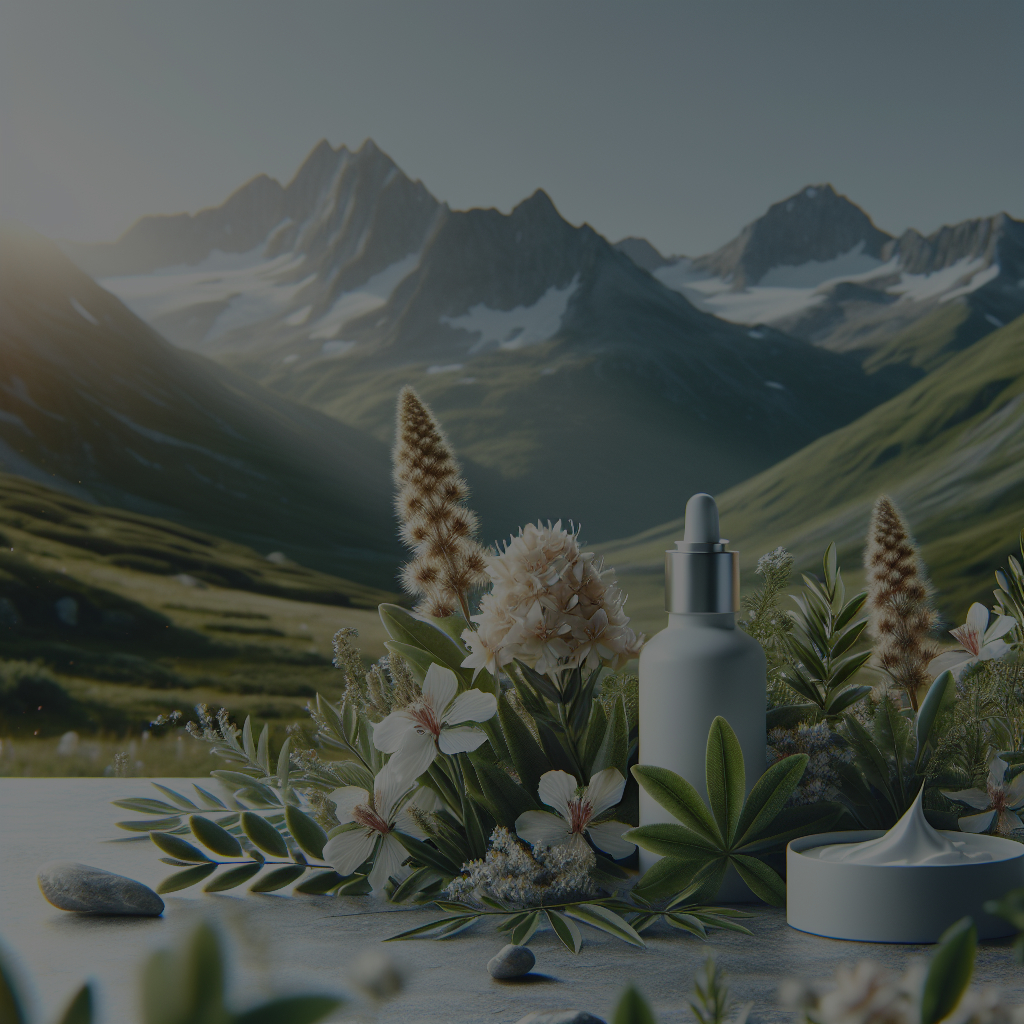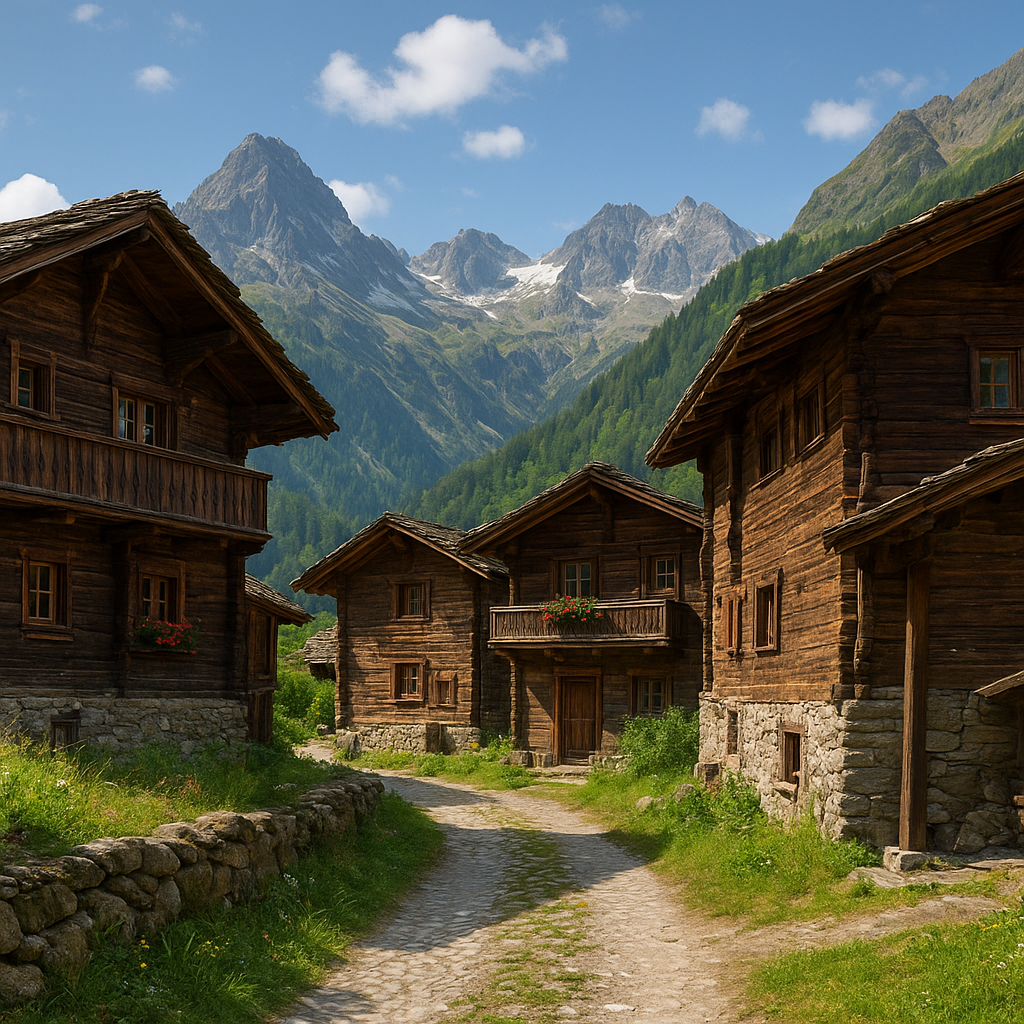
Alpine botanicals have long been celebrated for their potent properties and their ability to thrive in harsh, high-altitude environments. These resilient plants are now making their way into skincare routines, offering a natural and effective way to maintain a healthy skin barrier. This article delves into the benefits of alpine botanicals and how they can be incorporated into your skincare regimen.
The Unique Environment of Alpine Regions
Alpine regions are characterized by their high altitudes, extreme weather conditions, and unique ecosystems. The plants that grow in these areas have adapted to survive in such harsh environments, developing robust defense mechanisms against UV radiation, cold temperatures, and low oxygen levels. These adaptations make alpine botanicals particularly beneficial for skincare, as they offer a range of protective and restorative properties.
Adaptation and Resilience
Alpine plants have evolved to produce high levels of antioxidants, which help them combat oxidative stress caused by UV exposure and other environmental factors. These antioxidants are crucial for maintaining the health of the skin barrier, as they neutralize free radicals that can cause cellular damage. Additionally, many alpine botanicals have anti-inflammatory properties, which can soothe irritated skin and reduce redness.
Rich in Nutrients
The nutrient profile of alpine botanicals is another reason they are so beneficial for the skin. These plants are often rich in vitamins, minerals, and essential fatty acids, all of which contribute to a healthy skin barrier. For example, edelweiss, a well-known alpine plant, contains high levels of leontopodic acid, which has been shown to strengthen the skin’s barrier function and improve its resilience against environmental stressors.
Key Alpine Botanicals for Skincare
Several alpine botanicals stand out for their exceptional skincare benefits. Here, we explore some of the most effective ones and how they can be used to enhance your skincare routine.
Edelweiss
Edelweiss is perhaps the most iconic alpine botanical, known for its star-shaped white flowers and its ability to thrive in rocky, high-altitude environments. In skincare, edelweiss extract is prized for its antioxidant and anti-inflammatory properties. It helps protect the skin from UV damage, reduces inflammation, and promotes a healthy skin barrier. Edelweiss is often found in serums, creams, and sunscreens, making it a versatile ingredient for various skincare products.
Arnica
Arnica is another powerful alpine botanical, renowned for its healing properties. Traditionally used to treat bruises and muscle pain, arnica extract is also beneficial for the skin. It has anti-inflammatory and antimicrobial properties, making it effective in reducing swelling, soothing irritated skin, and preventing infections. Arnica is commonly used in creams and ointments designed to treat skin conditions such as eczema and acne.
Alpine Rose
The alpine rose, also known as Rhododendron ferrugineum, is a resilient plant that grows in the high-altitude regions of the Alps. Its extract is rich in polyphenols, which have strong antioxidant properties. Alpine rose extract helps protect the skin from oxidative stress, enhances its natural defense mechanisms, and improves its overall resilience. This botanical is often included in anti-aging products, as it helps reduce the appearance of fine lines and wrinkles.
Incorporating Alpine Botanicals into Your Skincare Routine
Integrating alpine botanicals into your skincare routine can provide numerous benefits for maintaining a healthy skin barrier. Here are some tips on how to effectively use these powerful ingredients.
Choose the Right Products
When selecting skincare products that contain alpine botanicals, it’s essential to consider your skin type and specific concerns. For example, if you have sensitive skin, look for products with soothing ingredients like arnica and edelweiss. If you’re concerned about aging, opt for products that contain alpine rose extract. Always check the ingredient list to ensure that the botanical extracts are present in sufficient concentrations to be effective.
Layering for Maximum Benefits
To maximize the benefits of alpine botanicals, consider layering products that contain these ingredients. Start with a gentle cleanser to remove impurities, followed by a serum that targets your specific skin concerns. Next, apply a moisturizer to lock in hydration and protect the skin barrier. Finally, use a sunscreen with alpine botanicals to shield your skin from UV damage. This multi-step approach ensures that your skin receives the full range of benefits from these potent plants.
Consistency is Key
As with any skincare routine, consistency is crucial for achieving the best results. Incorporate alpine botanical products into your daily regimen and give them time to work. While you may notice some immediate improvements, such as reduced redness and increased hydration, the long-term benefits, such as enhanced skin barrier function and reduced signs of aging, will become more apparent with regular use.
Conclusion
Alpine botanicals offer a natural and effective way to maintain a healthy skin barrier. Their unique properties, developed through adaptation to harsh environments, make them particularly beneficial for protecting and restoring the skin. By incorporating these powerful ingredients into your skincare routine, you can enjoy the numerous benefits they provide, from antioxidant protection to anti-inflammatory effects. Embrace the power of alpine botanicals and give your skin the care it deserves.

